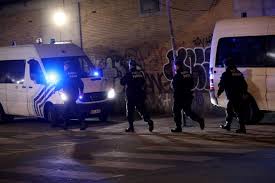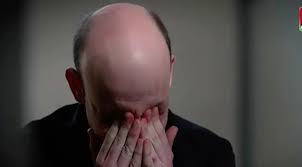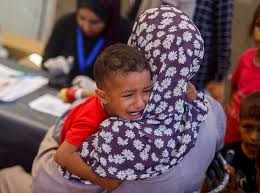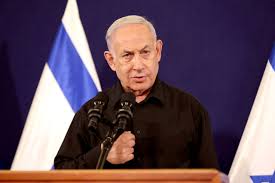
GAZA CITY (Agencies): In May 2021, the occupied Gaza Strip experienced renewed bloodshed and destruction as Israel launched a devastating 11-day military offensive on the besieged enclave. It was the fourth major offensive launched by Israel on the Palestinian territory in 14 years, compounding the already dire living conditions and the high rates of poverty and unemployment in Gaza which has been under an Israeli-Egyptian blockade since 2007.
The assault in May killed at least 260 people, including 39 women and 67 children, and wounded more than 1,900, according to the health ministry in Gaza. The bombardment also destroyed 1,800 residential units and partially demolished at least 14,300 other units. Tens of thousands of Palestinians were forced to take shelter in United Nations-run schools.
About seven months later, the reconstruction process has slowly begun, albeit with Israel continuing to prevent the entry into Gaza of many materials it says could also be used for military purposes. Talks mediated by Egypt have failed to reach a permanent ceasefire between Israel and Hamas, the Palestinian group which rules Gaza, and tensions remain high. Many people in Gaza have been left to cope with the aftermath of the 11-day assault, including many young people who were left seriously wounded.
Al Jazeera talked to three young people, who were injured and left with permanent disabilities during the offensive, to discuss what they endured and what they hope for in the new year. Mohammed Shaban’s only wish for the new year is to be able to see again. The seven-year-old lost his eyesight on the first day of the Israeli offensive in May. That day, Mohammed went out with his mother, Somayya, 35, to buy clothes for him and his siblings.
“He was very happy and could not wait to go home to show his new shoes to his sisters,” Somayya told Al Jazeera. “Suddenly, a huge explosion hit the area. I didn’t remember what happened. Dust, chaos, people screaming, blood …” Somayya stopped talking for a moment, then continued. “I remembered Mohammed, I started screaming: ‘Where is my son? Where is my son?’”
Mohammed’s eyes were severely wounded when an Israeli air attack hit two people on a motorcycle in Jabalia in the north of the Gaza Strip. He was rushed to hospital. “His face was covered in blood and his eyes were bleeding terribly. I lost consciousness when I saw him,” Somayya said. After several attempts, the doctors decided Mohammed’s eyesight could not be saved and they had to remove his eyes. “I can’t stop crying whenever I see him. He keeps asking his siblings, ‘Why can I only see black darkness? Why can’t I go to my school?’” she said.
“Last night, he told me: ‘Mum, I wish I could see your face.’” Mohammed was recently admitted to a school for visually challenged children, but his mother has no hope for the new year. “After what we have seen during this year, I cannot expect any better. Our days are the same. I believe Gaza’s destiny is to face more torture and suffering,” she said. She said her only wish for 2022 would be for Mohammed to see again. “I wish I could give him my eyes.”
A report by Defense for Children International (DCIP) said 2021, which saw the killing of 86 Palestinian children in the occupied territory, was the deadliest year on record since 2014. “During the 11-day military assault, Israeli forces killed Palestinian children using tank-fired shells, live ammunition, and missiles dropped from weaponised drones and US-sourced warplanes and Apache helicopters,” said the report on the May assault, dubbed Operation Guardian of the Walls. Farah Isleem, 12, feels more optimistic in the new year, despite losing her leg in May 2021.
“It was around six o’clock at morning. I was sleeping. Suddenly I woke up to an explosion. I was not able to move. Everyone was screaming around me,” she told Al Jazeera. An Israeli raid had hit Farah’s home on the fifth floor in a building in the al-Sabra neighbourhood in central Gaza City. Hazem Isleem, Farah’s father, is a security worker in Gaza City’s al-Shifa hospital. That night, Hazem was at work, dealing with patients and people being evacuated from bombed areas.
His seven children were rushed to the hospital after the bombing. Six suffered minor wounds, but Farah was badly hurt. “When I first saw her, I realised her leg would have to be amputated,” he said. “It was shattered and bleeding severely.” Farah was given a medical referral to Jordan, where she travelled with her mother three days after she was injured.
After trying to save her leg for 15 days, the doctors decided it would have to be amputated. A prosthetic limb was fitted to her leg later. “Imagine your beautiful and intelligent child having her leg amputated at this young age. It is a very hard feeling,” Hazem said. Upon Farah’s return from Jordan after a month, her family and school organised a reception party to welcome her back. “My big focus now is my studies at school,” Farah told Al Jazeera. “I face some obstacles going up and down the stairs, but my family always helps me.”
Farah told Al Jazeera before her injury, she was afraid of the sight of blood and of injuries. But now she wants to be a doctor, and her New Year’s wish is to learn English fluently as it would help her achieve her dream. “I was in so much pain during the treatment process. But thanks to God everything is ok now,” she said with a smile. According to UNICEF, before the escalation in violence, one in three children in Gaza already required support for conflict-related trauma. The UN body stressed the need for mental health and psychosocial support for children facing dire living circumstances. The organisation also said tens of thousands of children in Gaza will require humanitarian assistance to access safe drinking water and basic sanitation over electricity shortages affecting water production in the besieged territory.
Eighteen-year-old Mahmoud Naim lies on his back in bed, unable to move. He is paralysed and unable to feel the lower part of his body since the shrapnel from an Israeli shell hit him in the back and pierced parts of his stomach on May 18. “I went out to the street to buy bread for my siblings. I saw a friend and stood there talking to him. Suddenly there was an explosion. I don’t remember anything after that,” Mahmoud told Al Jazeera. “My life has been turned upside down,” he said.
Mahmoud stayed in the intensive care unit for several days before he was referred to Egypt for further treatment. He underwent seven surgeries and still needs intensive physiotherapy sessions and medication. Shrapnels are still stuck in Mahmoud’s back. They should be removed as soon as possible so that his condition improves. “Currently I can’t move at all on my own. My mother helps me, but my brothers are [too] young,” he said. “Sometimes I stay on the bed waiting for my cousins to come if I want to move.” Before his injury, Mahmoud worked in a shop to support his family.
His father has been sick for a long time and his condition deteriorated after his son’s injury. Mahmoud told Al Jazeera he heard of reports claiming the shell that hit him was not Israeli, but a Palestinian shell that hit him by mistake.
“It was a continuous state of war in which everyone was under bombardment and terror, and the victims were all innocent people,” he said. “Despite what happened to me, I am optimistic about the beginning of 2022 as every year is a new start. “Enough of the war and enough of what is happening to us in the Gaza Strip. I hope calm prevails, our living conditions improve and I wish I could walk again.”
The post In Gaza, young victims of Israeli bombing recount a brutal 2021 appeared first on The Frontier Post.






